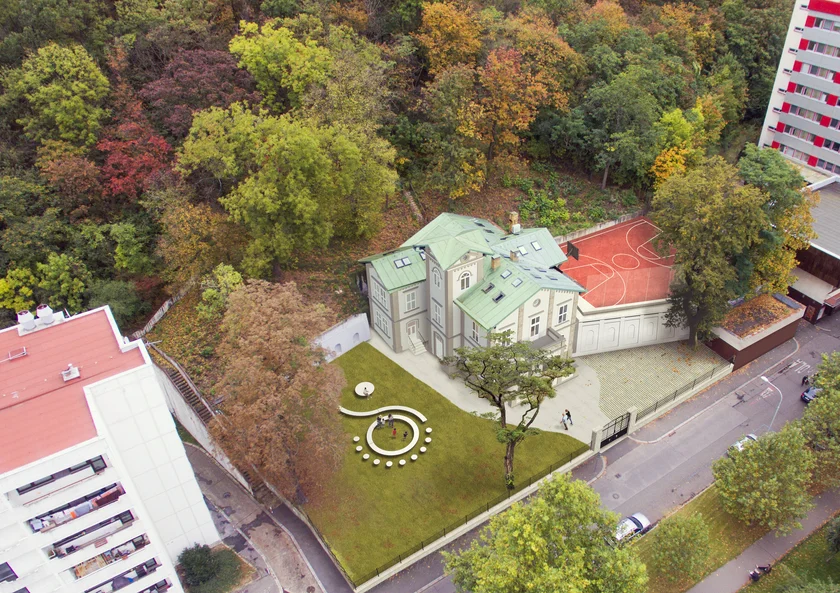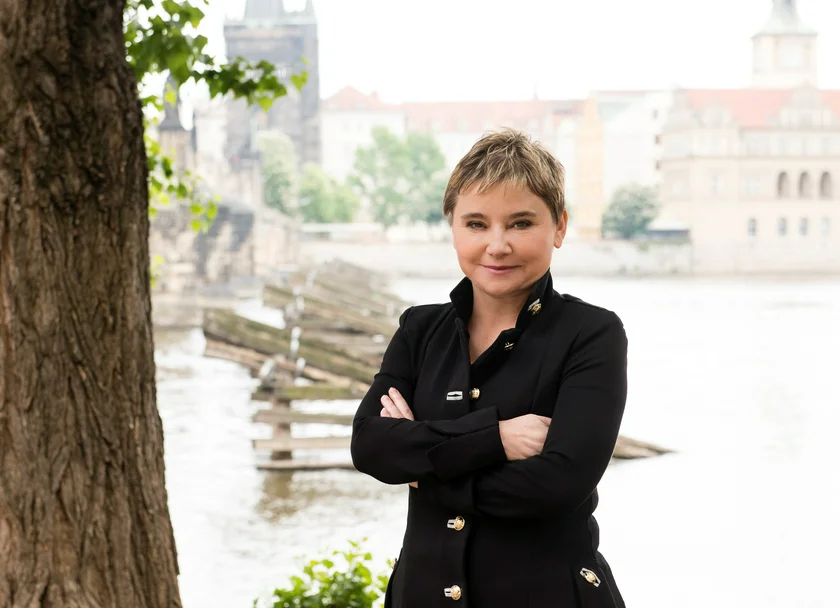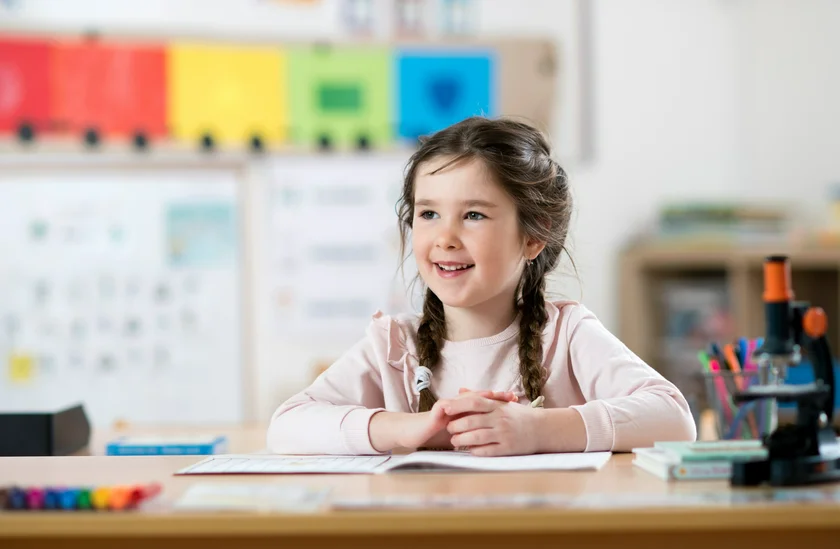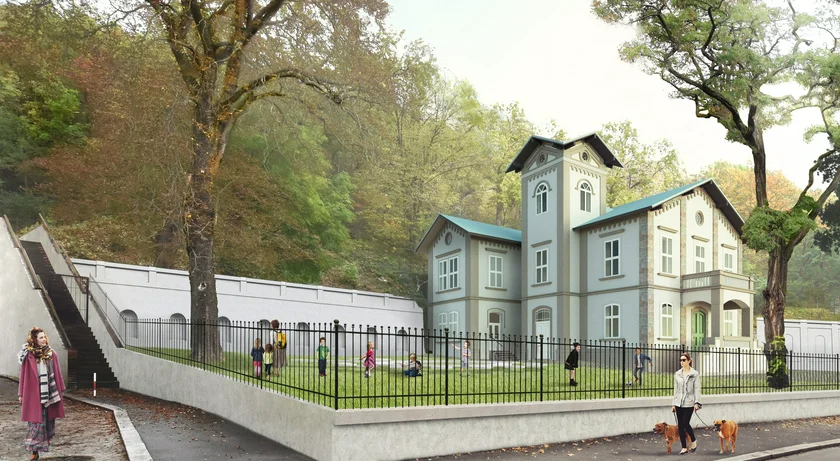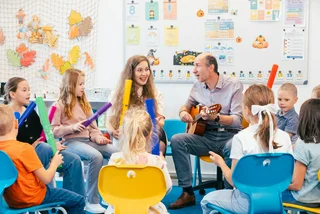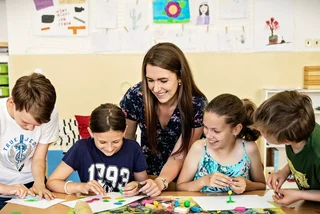A new type of school is launching on the Czech market. BASIS International School Prague is based on the American charter school concept, which aims to push pupils to learn and achieve at a high level. The goal is to prepare the pupils for entry to top-ranked international or Czech universities.
BASIS International School Prague opens in September 2021, and will eventually cover grades 0-13 in full English immersion. The school uses expert teachers who take advantage of the pupils’ natural curiosity to create a positive learning environment. The teachers are native speakers, with experience from the BASIS network.
School founders Olga and Michael Block, both with backgrounds as economists, opened the first BASIS school in Tucson in the U.S. state of Arizona in 1996. Since then, the network of charter schools has expanded to over 40 schools internationally in three states and Washington, D.C., as well as private schools in Asia.
"Founder Olga Block has Czech roots, and has a large family and professional background here in the Czech Republic. She has extended the successful BASIS curriculum not only to the United States but also to China and Thailand. Logically, the next step was to transfer this successful educational model to the Czech Republic,” BASIS International School Prague spokeswoman Veronika Ludvíková said.
"And one of the first students of the BASIS school, the daughter of the founder Olga Block, now lives with her family in the Czech Republic and wants to offer her sons the same quality of education and the opportunity to study at prestigious foreign universities as she had,” Ludvíková added.
The daughter’s experience in public school in Arizona is what inspired the Blocks to develop their curriculum and school. The program at the public school simply wasn’t challenging, and the Blocks felt that other parents must also want something more substantial for their children.
Unlike many schools in the U.S., where middle school pupils are automatically passed on the next grade, BASIS schools have tough tests at the end of each year to ensure the pupil is ready for the next grade. Not everyone passes, and a few pupils have to repeat a grade. It is BASIS philosophy that promoting underprepared students ahead is not in their favor.
The prospect of children having to repeat a year at first caused many parents to move their kids to less strict schools. But slowly, the Blocks were able to find parents and pupils who saw the benefit of methods that required results.
The curriculum is based on a spiraling method that reinforces previous knowledge and then builds up on that base to achieve the next level. Teachers regularly return to the material already covered and to strengthen the knowledge and context.
For grades 1-3, the curriculum utilizes a unique system of two experts present in all core classes simultaneously: a learning expert teacher with early education specialization and a subject expert teacher with a specialized background in the subject. This combination ensures the younger pupils understand and absorb the information presented.
There is also an emphasis on practical use of education. The teachers work together using hands-on experiences and experiments to connect the theoretical knowledge the pupils learn in different subjects. Connections are shown, for example, between history, geography, and mathematics or between mathematics and music. Emphasis is placed on mathematics, science, and music and the combination of these topics.
BASIS also uses its own technology to make learning more effective. “SPORK is a unique electronic platform, where teaching takes place with the help of tablets and thus streamlines the whole process,” Ludvíková said.
“Teachers have access to a huge amount of data and information to build their lesson plans and the tablets can be used for teacher-pupil-parent communication. The tablets are used for education and information retrieval, not just for fun and communication. We teach the students to use the tablet as a learning tool,” Ludvíková added. The app not only improves content delivery but also classroom organization.
While the BASIS schools in the U.S. have a reputation for being tough, they have also met their goals. Empirical rankings in the U.S. such as the number of pupils earning National Merit Scholarships and other academic accolades, and the numbers of graduates going on to prestigious universities also place BASIS charter schools in the top ranks.
In 2018, BASIS schools took the top five spots in the ranking of the best public high schools by U.S. News & World Report magazine.
"BASIS schools are repeatedly ranked in the top 10 best high schools in the entire U.S. and are highly rated in the international PISA comparison, evaluated by the OECD,” Ludvíková said. More than 50 percent of BASIS graduates are admitted to the most prestigious U.S. and U.K. universities.
While many charter schools are supported by taxpayer money in the U.S., that model does not work in the Czech Republic.
“Due to different rules for financing schools in the United States and in the Czech Republic, the possibility of private schools without fees in the Czech Republic is currently not feasible,” Ludvíková said.
The Czech state provides funding to schools only if the school is in the register of schools and adheres to the prescribed state curriculum.
“We want to take full advantage of the benefits and wealth of our own curriculum, which we have developed for more than 20 years. Therefore, we will not be entered in the register. We will operate on the basis of a permit for compulsory school attendance at a foreign school in the Czech Republic. This is how other international schools in the Czech Republic work. This will allow us the necessary freedom from curricula regulations to make the Czech school as good as our US schools are,” Ludvíková said.
This article was written in cooperation with the BASIS International School Prague. Read more about our sponsored content policy here.












 Reading time: 4 minutes
Reading time: 4 minutes 

